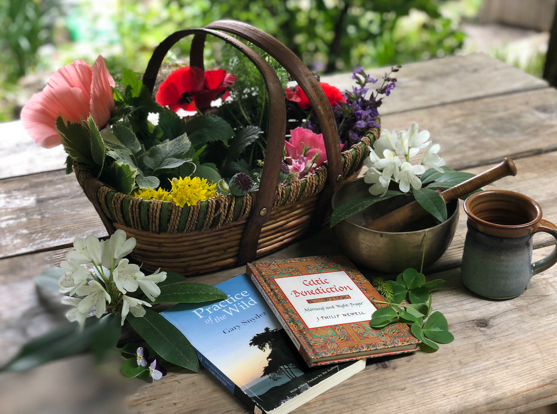
The Lost Names of God: A Solstice Reflection
What do you do when you lose something? You ponder its whereabouts, and then go out to look for it, and sometimes you end up recovering that which was lost in places that surprise you. We have lost the knowing that the earth is sacred, that we are surrounded by hallowed presences who bear witness to our lives, as well as express their own inherent divine qualities. Seek through the practice of ceremony. Find a recovered and reconnected way of understanding that the holy is Here. And hope beyond hope, may your ceremonial search yield the surprise of the divine ground of being that is within your particular place.

My Rewilding Year
My personal practice of the Rewilding Wheel invited me into a soul-journey of reconnection to the sacred that is deeply rooted in my bioregion. This practice recovered these roots within the forests, fields, watersheds and mountains of my Pacific Northwest home. Discover what I learned from the spirit of my place!

